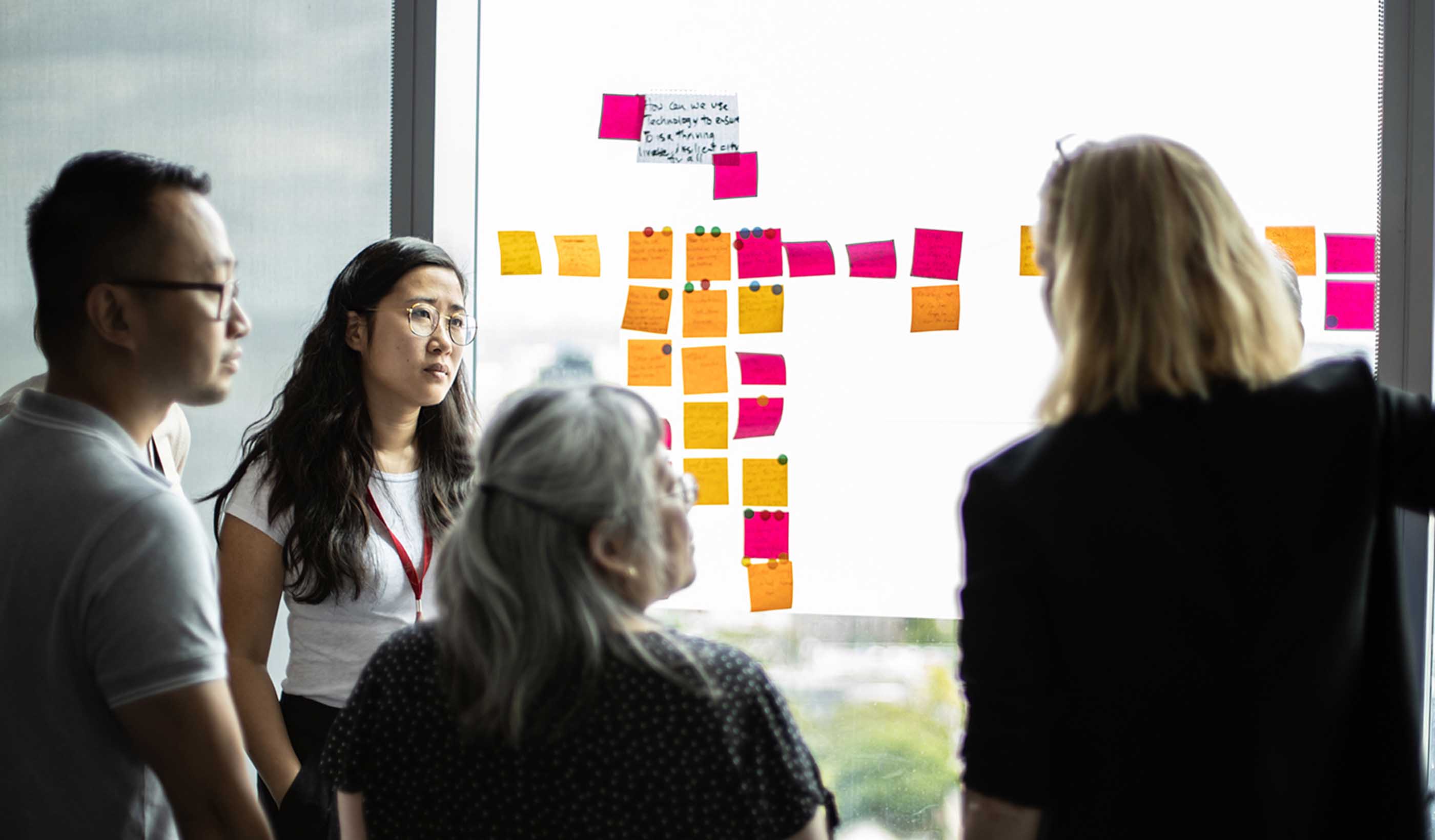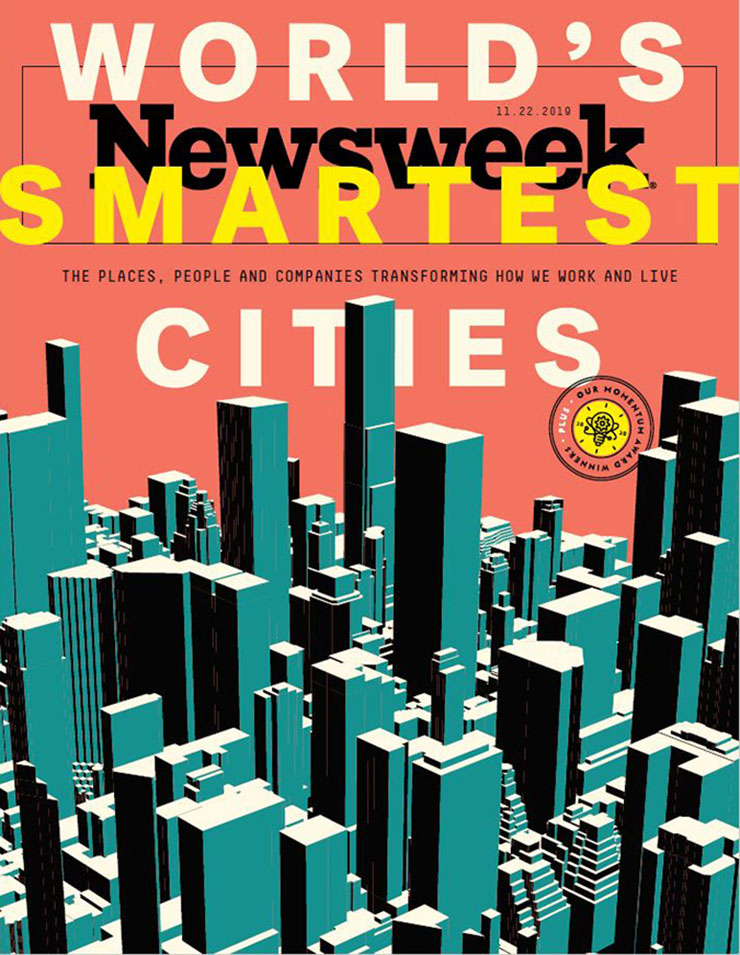Stantec’s Top 10 Ideas for 2019 (Plus 2 bonus items!)
December 18, 2019
December 18, 2019
From expert insights to industry accolades, here are 10 ideas that mattered in 2019
Since its inception in 2017, Ideas—our knowledge sharing hub focused on providing expert insights into trends, challenges, and innovations that shape our world—has grown considerably. In 2019, team members from across our Company and around the globe shared publications, webinars, trade articles, infographics, quizzes, and more than 165 blog posts.
Last year, we published a list of our 10 most viewed posts of 2018. This year, we took a more subjective approach. What follows are 10 posts that, in one way or another, were important to our company and the clients and industries we serve (plus a couple of bonus items that made us #StantecProud).
1. [With Video] 3 surprising things I discovered from hacking 21st-century city challenges
There is nothing like spending two days together in an electrically charged environment to challenge yourself and forge relationships. It underscored the fact that we are all designers, we all have ideas worth consideration, and we can all contribute. It was truly a microcosm of how we can engage people to improve our public realm and address challenges that affect us all.

Brenda Webster Tweel (second from right, back to camera) mentors participants at the Stantec Idea Hackathon: Toward a Smart Toronto, held June 25-26, 2019.
2. Stantec ERA Issue 01 | The Energy Remix
What is the future of energy? Old and new stakeholders are redefining how we power, live on, and move about our planet.
3. Design Quarterly Issue 05 | Smart & Livable Cities
The smart city is an approach to problem solving. It’s the application of technology in a way that creates a more livable, sustainable city environment for people. Technology is not the dominant force, it’s behind the scenes. Lots of companies want to talk about and sell products, but a city manager doesn’t care about specific tech or piece of software, they want to provide relevant reliable services to their citizens.

We talked about Smart Cities a lot this year, so we're thrilled to be included on Newsweek’s Top 100 Smart City Partners list as part of the Newsweek Momentum Awards.
4. Developing solutions to handle PFAS—aka “forever chemicals”—it’s an evolving science
“Emerging contaminants carry, by definition, an element of uncertainty. This is one of the reasons they can be so scary. While PFAS are clearly ubiquitous in the environment, no one knows for sure how many people are affected by PFAS contaminated drinking water, or the long-term health impacts. It is clear is that as an industry we need to move quickly; communities and families drinking PFAS contaminated water deserve the best we have to offer,” writes Henry Croll.
5. The Dream Cabin: Reinventing what it’s like to sleep in a hotel room
This Dream Cabin team received funding, time, and support from Stantec’s Greenlight program, which supports our employees’ great ideas. For the group, the project is more than a passion. It’s education, it’s collaboration, it’s an experience.
“This doesn’t feel like work to me,” says Tony Fiorillo. “It feels like discovery.”

This is what you can expect to see if you spend the night in YOTEL Boston’s Dream Cabin. Among other room features, the light canopy above the bed adjusts to promote sleepiness at night and alertness in the morning.
6. Discovering how “The Emily Test” can offer new—and better—perspective to design
“We all need to carefully consider our designs—roads and streets, water projects, buildings—from multiple perspectives. Seek a different point of view,” writes Mike Smith. “Ask for someone to challenge your perspectives. Look through different lenses. If we seek the right feedback, we will be able to say we represent all our society, not just an isolated view that is ours alone. Bottom line: Do the Emily Test!”
7. Robinson Preserve Wins Engineering Award
This project in terms of habitat restoration, in terms of coastal systems is pretty extraordinary.
8. Infographic: What is Microtransit?
Microtransit (also called Demand Response Transit) uses minibuses, shuttles, cars, or—one day—autonomous vehicles on flexible schedules to integrate more riders into a transit system. Transit agencies in all market sizes are employing or piloting strategies that incorporate microtransit within their service models to better meet the mobility needs of the communities they serve.
9. Published in World Water Magazine: Need project insight? Ask Alexa
“In resource-intensive businesses such as design and professional services consultancies, AI will fundamentally change overarching business models as the emphasis moves away from a cost per person to service cost,” writes Paul Taylor.
We’re proud of our experts’ ideas that we publish. Others have noticed how informative they are, too. In “Bid Adieu to the A380, the World's Jumbo-est Passenger Jet,” Wired references our Ideas Hub blog on “rejiggering airport infrastructure.”